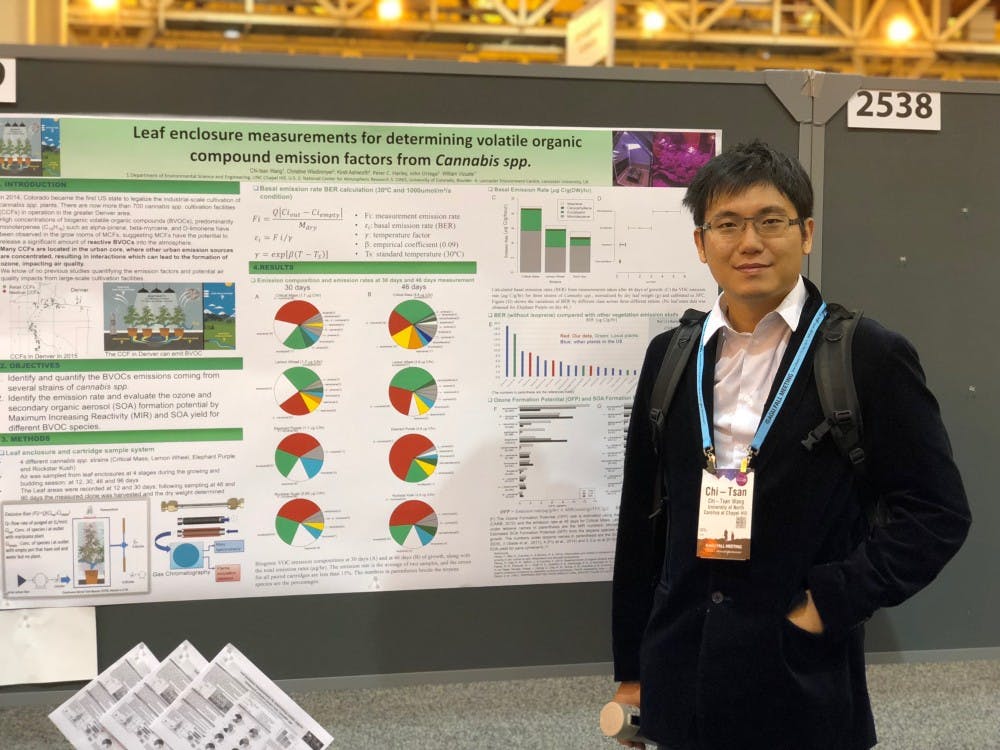A UNC professor is part of a new research team examining how the growth of the marijuana industry could negatively impact public health beyond the individual impacts of smoking.
William Vizuete, professor of environmental sciences and engineering at the Gillings School of Global Public Health, is studying how potted marijuana plants could be contributing to an increase in air pollution. According to a January Science article, Vizuete and a team of researchers at the University of Colorado Boulder are working collectively to measure the volatile organic compounds released into the air by four types of potted cannabis.
With much of Colorado's marijuana plant growth taking place in warehouses located in downtown Denver, Vizuete was concerned this could elevate the levels of pollutants. As mentioned in Science, VOCs can easily mix with nitrogen oxides produced by cars and contribute to air pollutants.
“I thought, well if these (marijuana) plants do produce gases, where they’re putting them in downtown Denver is ideal for making air pollution. Given the number of plants and locations, I thought that this could be a public health issue that deserves looking at," Vizuete said.
Vizuete is working with researchers from UC Boulder, as well as Chi-Tsan Wang, a doctoral student in environmental sciences and engineering at the Gillings School of Global Public Health.
“I’m using the air quality model to understand how the air quality changes. I also used instruments to detect those VOC compounds and identify the concentration,” Wang said.
The air quality model used in this research was developed by the EPA as the foundation for the 1963 Clean Air Act. Vizuete and his team are applying the EPA model for the state of Colorado to conduct their research.
“These models are developed by the EPA for the states to use to justify their control strategies. But, these models do not include any emissions from the marijuana industry. So, I’m using their regulatory model and I’m adding to it the marijuana industry to see if that changes the predicted air quality in the model,” Vizuete said.
In addition to directly studying plant emissions, Vizuete intends to bring attention to the lack of available information surrounding the impact on public health as result of the legalization of marijuana.



